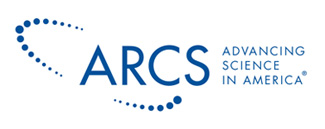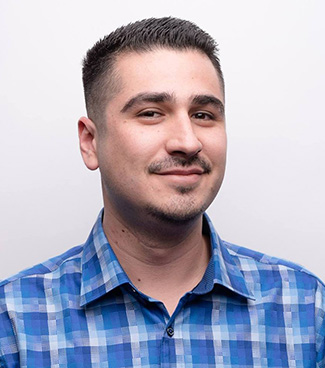Fourteen UC Santa Cruz graduate students have received scholarships worth a total of $158,000 from the Achievement Rewards for College Scientists (ARCS) Foundation for the 2019-20 academic year. Since 1976, the ARCS Foundation's Northern California Chapter has given more than $2 million in scholarships to UCSC students.
This year's ARCS scholars will be recognized at the ARCS Scholars Awards Celebration in San Francisco on October 23.
The ARCS Foundation, founded in 1958, is a national organization that provides scholarships and fellowships for the country's most promising science, medical, and engineering students. This year's ARCS scholars at UC Santa Cruz represent the Science Communication Program and the Departments of Astronomy and Astrophysics; Biomolecular Engineering; Chemistry and Biochemistry; Computer Science and Engineering; Earth and Planetary Sciences; Ecology and Evolutionary Biology; Environmental Studies; Molecular, Cell and Developmental Biology; Ocean Sciences; and Physics. The scholars and their interests are as follows:
Asher Wasserman is a graduate student in astronomy and astrophysics. His research interests lie at the intersection of galaxy evolution, globular star clusters, and dark matter physics. He is currently working on new techniques for measuring the photometric properties of extragalactic globular cluster systems.
Bryan Thornlow is a graduate student in biomolecular engineering. His research focuses on transfer RNA (tRNA) gene evolution. He is currently developing a simulator of evolution that will enable testing of fundamental unresolved questions in gene family evolution.
Miguel Pinto, a graduate student in chemistry and biochemistry, received the ARCS Foundation's Anniversary Award, which celebrates the organization's 60th anniversary and provides $17,000. His research includes the design and construction of targeted drug-delivery systems for the personalized treatment of cancer or infections.
Sam Mansfield is a graduate student in computer science and engineering. He is studying how to improve healthcare with objective health measurements and is collaborating with researchers at UCSF on the design of a Connected Health platform to prevent pressure injuries by automatically analyzing the pressure and mobility of a patient in bed.
Heather Shaddox is a graduate student in Earth and planetary sciences. She is interested in using seismology as a tool to study offshore processes such as slow earthquakes in the ocean floor and oceanic internal waves. A recent project at the remote Dongsha Atoll in the South China Sea, if successful, will be the first seismic detection of oceanic internal waves, which are key for climate models.
Katherine Dale is a graduate student in ecology and evolutionary biology. Her overarching research goal is to understand the mechanisms influencing the dispersal of fish in the eastern Pacific during their critical larval stage. She is currently examining dispersal of fish larvae through a diverse set of tools, including morphology, genetics, behavior, and computer modeling.
Theodora Block is a graduate student in ecology and evolutionary biology. She studies how individual behavior can help inform the understanding of complex social groups. Her research focuses on the behavior of golden-crowned sparrows and how individual behavior can explain social position and survival.
Josie Lesage is a graduate student in environmental studies. She studies the interacting effects of climate change and land management on ecological communities and uses the results to make science-driven recommendations for conservation and restoration. Her research focuses on the responses of grassland vegetation communities to shifts in temperature and precipitation throughout California.
Amanda Brambila is a graduate student in molecular, cell and developmental biology. Her research aims to elucidate the mechanisms that control cell growth and size, with a long-term goal of helping to identify novel targets for cancer therapeutics.
Elektra Robinson is a graduate student in molecular, cell and developmental biology. Her research focuses on the role of long noncoding RNAs (lncRNAs) in the regulation of the innate immune system, the body’s first line of defense against invading pathogens. This knowledge could lead to the identification of novel targets for therapeutic intervention for infectious diseases.
Natasha Vohkshoori is a graduate student in ocean sciences. Her research threads marine biogeochemistry with ecology to unveil productivity of otherwise inaccessible ecosystems such as the deep-sea and the geologic past. She is working on a collaborative project to use archaeological shell middens to reconstruct nearshore productivity and shed insight on how climate regime shifts alter coastal food webs. She is also collaborating with the USGS to study deep-sea chemosynthetic environments in regions that may be impacted by deep-sea drilling.
Tyler Smart is a graduate student in physics. His research involves applying and developing advanced electronic structure methods which can accurately describe complex materials for renewable energy and quantum technology applications.
Ariana Remmel is a graduate student in the Science Communication Program. With a passion for sharing meaningful research science with the public, Ariana is exploring new and interesting ways to make science accessible and engaging for diverse audiences.
Amanda Heidt is a graduate student in Science Communication Program. With a background in marine science, she enjoys telling engaging stories while also contributing to scientific progress. She recently completed a science communication fellowship with KQED.




